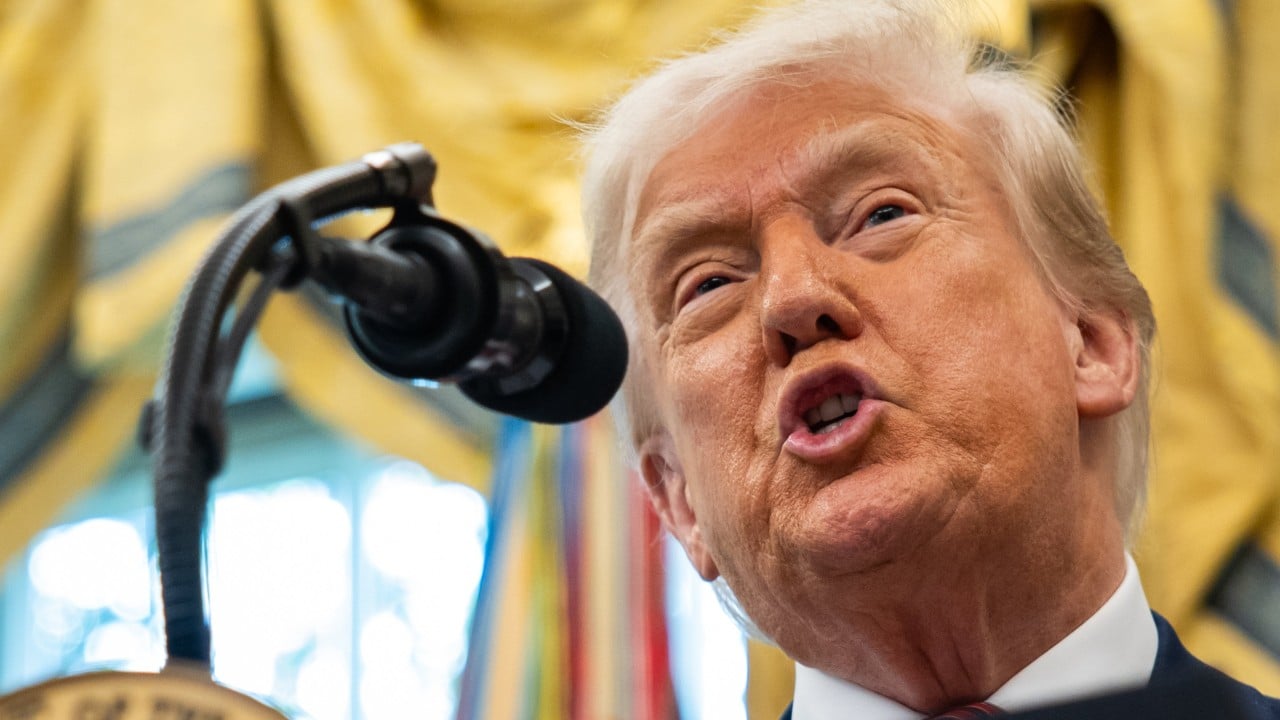
Hollywood is on edge as United States President Donald Trump's proposed tariffs on foreign film productions spark fears of retaliation, threatening to undermine one of America's most dominant export industries.The move, claimed by Trump to protect United States interests, could backfire by exposing vulnerabilities in the services trade where the United States holds a massive surplus and potentially trigger foreign restrictions on American movies, according to analysts.In a post on Truth Social on Sunday, Trump said he was directing the Commerce Department and his trade representative to "immediately begin the process of instituting" the levy on foreign movies.
"WE WANT MOVIES MADE IN AMERICA, AGAIN!" Trump wrote.However, White House spokesperson Kush Desai said the Trump administration has not yet made any final decisions on the film tariff plan.Shares in United States media and entertainment companies dropped on Monday.
Netflix Inc.
and Warner Bros.
Discovery, Inc.
fell about three percent while Paramount Global and Walt Disney Co.
slid about two percent as markets opened.'Retaliation will kill United States film industry'The United States plan to impose tariffs on films produced overseas could invite retaliation, with government officials of Australia and New Zealand already vowing countermeasures to defend their own film industries.Cui Fan, a professor at the University of International Business and Economics, said that if the United States slaps tariffs on film services, it could trigger retaliatory measures from other countries.Major exporters of films to the United States , such as the European Union, Canada, and Japan, might introduce policies to put local films first and limit quotas for imports of American movies, Cui told China Media Group (CMG).Alternatively, they might impose additional taxes or fees on screenings of American movies that would directly undermine Hollywood's global box office performance, added Cui.Scott Roxborough, chief of the European Bureau at the Hollywood Reporter magazine, told CMG that the tariff plan would have a catastrophic impact on the entire industry."The whole movie industry at the moment is in crisis already.
If we add on top of that extra costs of production these tariffs, it could have a really disastrous effect on the industry," said Roxborough.
"I really don't see anything positive coming from this."If Europe decides to impose tit-for-tat tariffs just as it has threatened to do with goods tariffs the impact could be "huge," he added.Roxborough explained that when it comes to films, the United States runs a massive trade surplus: In most European and Canadian markets, American movies dominate 70 percent to 80 percent of box office revenue.
Slapping tariffs on these imports wouldn't just hurt local theaters, it could devastate Hollywood's global stronghold, he said.William Reinsch, a former senior official at the United States Department of Commerce, said that the proposed United States tariffs on films could backfire."The retaliation will kill our industry.
We have a lot more to lose than to gain," Reinsch told The Guardian.California, Hollywood's heartland, would be hardest hitThe entertainment industry, including Hollywood film production, serves as a cornerstone of California's economy.
According to one estimate, it created over 600,000 jobs and $30 billion in annual economic output for the state.In early April, a Californian member of Congress said at a press conference that beyond generating economic benefits for the Golden State, the entertainment industry has also significantly boosted California's tourism sector, with the combined economic output reaching $100 billion.The state has already voiced strong opposition to the so-called "reciprocal tariffs," which have driven up production costs for Hollywood.
California becomes the first state to sue the Trump administration over tariffs.According to a recent report by the California Film Commission, Los Angeles-area on-location film production dropped 22.4 percent year on year in the first quarter of 2025.Imposing 100 percent tariffs on foreign films would most immediately drive these productions to enter the United States through streaming platforms, a channel 73 percent of American adults now identify as their default way to watch movies, according to one estimate.This tariff plan is seen as a severe blow to traditional Hollywood studios, forcing them to face even fiercer competition in their home market.Pang Hongbo, a film critic, told CMG that a 100 percent tariff would likely force many low-to-mid-budget foreign art films to abandon United States theatrical releases.This would also impose major barriers for Oscar-qualifying films requiring United States theatrical screenings, potentially eroding the Academy Awards' global influence at an accelerated pace, said Pang.'Shooting itself in the foot'Taxing foreign films would also mean the Trump administration is pulling its services trade sector into a trade war.The United States holds a massive trade surplus in services with almost all of its trading partners.
In 2023, United States services exports exceeded $1 trillion, accounting for 13 percent of the global total.
In 2022, services exports supported 4.1 million high-paying United States jobs.According to one analysis, if multiple countries impose broad retaliatory measures targeting United States services trade, up to 84 percent of non-farm employment in the country could be at risk in a worst-case scenario.Li Jun, director of the Services Trade Institute under the Chinese Academy of International Trade and Economic Cooperation, told CMG that for a country whose economic strength lies in its services trade surplus, the tariff plan on foreign films is like shooting itself in the foot, undermining the global reputation and long-term interests of the entire United States services sector.

 13
13














